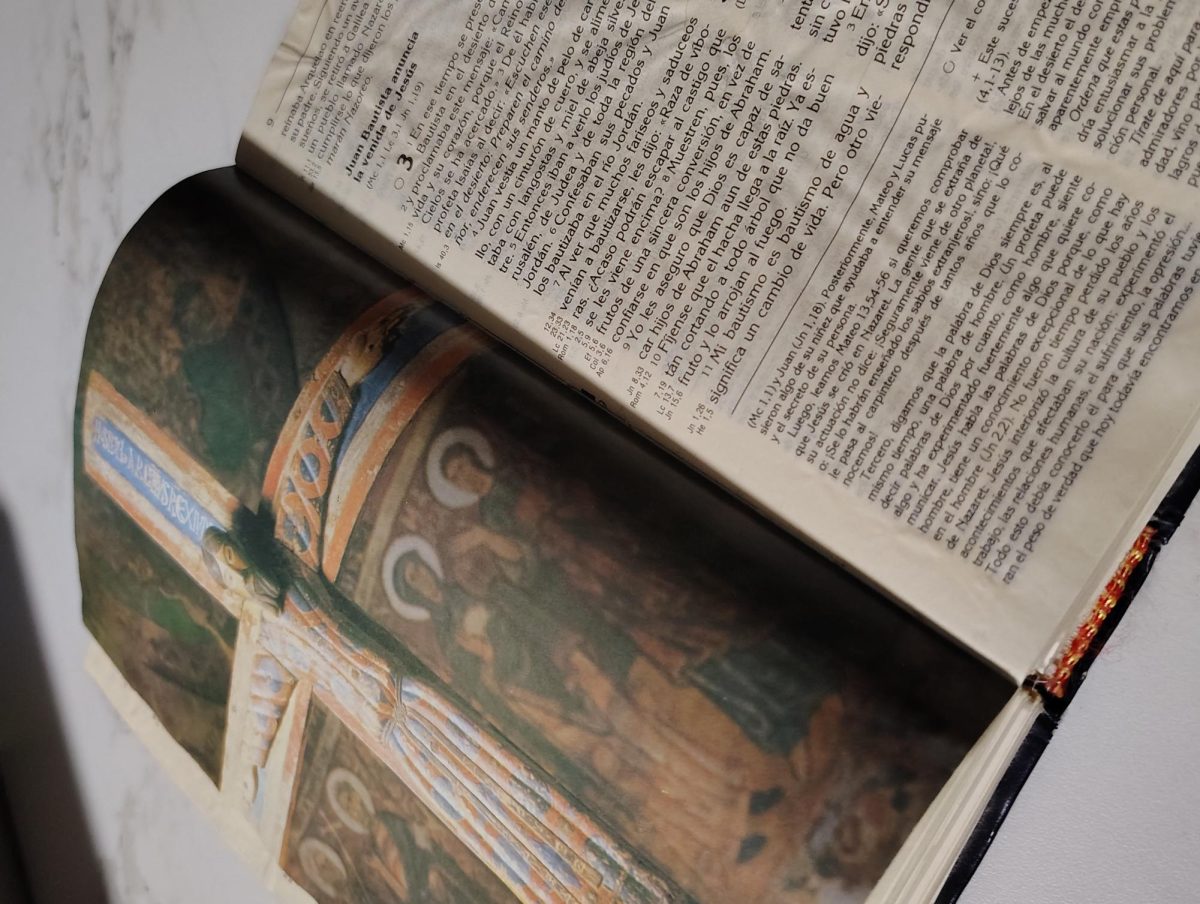Pope Francis, beloved by many, died April 21, 2025 of a stroke and heart failure. Known for speaking out about sensitive topics, Pope Francis was a pope of firsts.
Elected pope in 2013, Francis was the first pope from South America and from the Jesuit order (one of the Roman Catholic religious orders), starting his legacy of reform.
Francis was born December 17, 1936 in Buenos Aires, Argentina as Jorge Mario Bergoglio. He entered the Jesuit novitiate in 1958 and became ordained as a priest in 1969. Then in 1973, Bergoglio took his final vows in the Jesuit order and served as the head of the Jesuit order in Argentina from 1973-1979.
His tenure overlapped with the military coup in Argentina known as the “Dirty War.” From 1976-1983, thousands of people would disappear because of the military and police. Because of this, Bergoglio would help hide people from the authorities and help them flee the country, demonstrating his talent for helping people.
As the years would pass, Bergoglio would establish his profile as a “people’s pope.” He would humbly travel using public transportation and live in his personal apartment rather than living in the archbishop’s residence. He also commonly spoke out on the legalization of same-sex marriage and was an advocate for the poor.
In 2013, Pope Benedict XVI resigned and Bergoglio became Pope Francis. He was the first from the Jesuit order and the first Pope Francis.
“If someone is gay and he seeks God and has good will, who am I to judge,” addressed Francis in his first papal news conference. Despite his newfound, incredibly important position, Francis stayed true to his values and never let them waiver. Throughout his time as Pope, he addressed many important issues such as sexuality, birth control and abortion, and sympathized with women’s rights, even going as far as to including women into ancient traditionally male only rituals and allowing women in higher roles in the church.
His accomplishments and legacy of change made his death reach far more people than just the Catholic Church. People all around the world felt the aftereffects of losing, what some might claim, the most progressive pope yet.
With the death of Pope Francis comes the need to choose the next pope. This calls for a conclave (“a meeting of Roman Catholic cardinals secluded continuously while choosing a pope”).
The conclave takes place in the Vatican City, where cardinals under the age of 80 will meet and vote for the new pope.
Before the conclave can start, cardinals have to make sure that there is no audiovisual equipment or any communication with the outside world during the conclave. This is to prevent any political influence from affecting the voting.
For the first day, the cardinals can vote once in the afternoon. Two-thirds of the ballot must agree on the choice. If they’re not in agreement after the first day, cardinals are able to vote twice in the morning and twice in the afternoon each day after until two-thirds are in agreement. After the votes are cast and a voting round is over, the ballots are burned in the chimney above the Sistine Chapel. If the smoke is black, the cardinals haven’t agreed. If the smoke is white, a new pope has been chosen.
Once the new pope has been chosen, he is asked if he “accepts his canonical election as Supreme Pontiff” and selects his new papal name. Then he is taken to the “room of tears” in the Sistine Chapel and meets the cardinals while they pledge their obedience to him.
After that, the oldest cardinal tells the crowd in St. Peter’s Square there is a new pope, allowing the pope to bless the crowd.
Besides bringing about the first conclave in more than a decade, Pope Francis’ death has led to a resurgence of interest in a multitude of theories, including the prophecies of St. Malachy.
St. Malachy was an Irish Bishop in the 12th century, most famously attributed to writing his book of prophecies about 112 Catholic Popes. It was discovered in 1590 when the prophecies seemingly stopped being accurate after it was discovered.
A prophecy about John XXII, the 35th pope in the book of prophecies, stated “de sutore osseo,” meaning the bony shoemaker. The prophecy turned out to be true, as the pope’s family were shoemakers and their family name was “ossa,” meaning bone in Latin. Another instance of St. Malachy’s prophecies being right was with the prophecy made about John XXIII, the 107th pope in the book of prophecies, stating “pastor et nauta,” meaning shepherd and sailor. He came from Venice, a city of sailors, and his goal of his pontificate was to be a “good shepherd.”
St. Malachy’s prophecies have long been a hit or miss, with his most infamous one predicting the end of the world with the death of Pope Francis.
His final prophecy, made about the 112th pope, stated that “In the final persecution of the Holy Roman Church, there will sit Peter the Roman, who will pasture his sheep in many tribulations, and when things are finished, the city of seven hills will be destroyed, and the dreadful judge will judge his people.”
According to St. Malachy, the 112th pope will bring in the end of days. With Pope Francis having been the 112th pope, this prophecy has generated controversy between many people.
Some people believe that the final judgement is coming, while others believe that the prophecies are completely false.
Completely disproving St. Malachy’s prophecies, Robert Francis Prevost was elected May 8, 2025, becoming Pope Leo XIV in one of the shortest conclaves in recent history.

